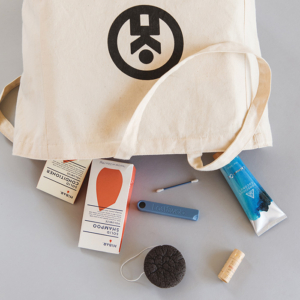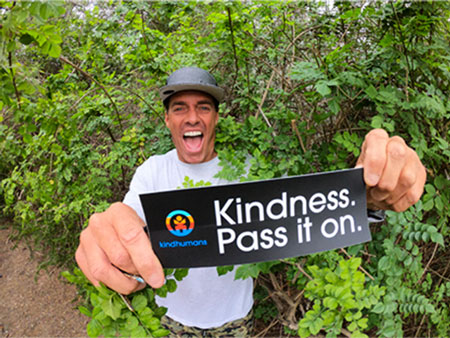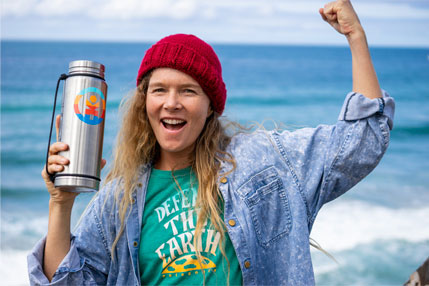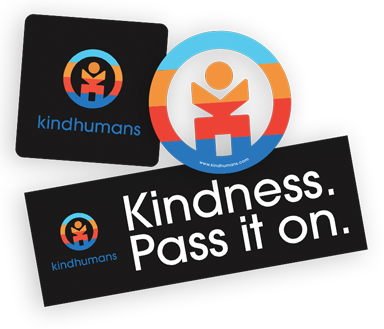
Vote with Your Dollar
CompanyVote with Your Dollar
Voting doesn’t always mean politics; you can inspire changes in practices by shopping responsibly. Our friend, Gabi, shares some facts that show that the move toward sustainability is possible! – KH
The 2020 presidential election has the potential to shatter records of American voter turnout. The University of Florida’s United States Elections Project has predicted that as many as 65% of eligible voters might cast a ballot, the highest percentage since 1908. Americans across the political spectrum are clamoring to have their voices heard, and to participate in shaping the future of the country.
The opportunity to participate in general elections only comes every two years, but Americans can actually vote every day with their dollar.
Voting with your dollar means spending your money with brands whose practices align with your values and the issues that are important to you. Every time you choose an organic apple instead of a conventionally grown one, or buy a Fair Trade Certified shirt instead of one made at a sweatshop, you’re sending a message that environmental or social responsibility is important to you.
Conscious buying gives positive feedback to companies trying to do the right thing, and it puts pressure on the ones that are losing your business to shift their practices to align with what you’re demanding from them.
Voting with your dollar works: Corporations and entire industries have shifted their practices to be more sustainable or ethical because of consumer influence. When Burger King introduced a meatless burger option nationwide last year, they did so after seeing a nearly 20% increase in traffic at one test location where they offered the vegetarian option. And when Procter & Gamble announced last April that Old Spice and Secret deodorants would be available in paper-tube packaging to eliminate plastic waste, they credited consumers for the push toward sustainability:
“The majority of Gen Z consumers have high expectations for environmentally friendly products.”
Sometimes, customer values can become so clear that they’re impossible for businesses to ignore: A Nielsen study found that from 2017-2018, sales growth of chocolate bars with environmental responsibility claims on their label was five times the growth rate of chocolate bars with no environmental claims.



What you don’t buy can have just as much influence in swaying a company’s values. When a company is considering shifting away from selling a certain product for reasons of “principle,” lagging sales in that product can be the extra push they need to do the right thing. Most likely, Petco’s decision to stop selling dog food with artificial ingredients last year wasn’t just out of the goodness of their hearts. Natural pet food sales had grown into a multi-billion dollar industry, and it was clear that consumers were growing more aware of – and more concerned about – what was in their pet’s food.
“Whenever you have a company potentially leaving money on the table by stopping selling a product, they most certainly have done the research on their customer to see what their values are,” says Kellan Terry, director of communications at Brandwatch, a social intelligence company that helps businesses analyze consumer conversations about their brands.
More often than not, voting with your dollar means spending more. Paying workers a fair wage means a $5 T-shirt just isn’t feasible, and pasture-raised chickens are certainly going to drive up the cost of your eggs. But for a growing number of people, putting their money where their values are is worth the premium. In a survey by market research firm Nielsen, 41% of people said they were willing to pay more for an organic product, and 38% for one made with sustainable materials.
Of course, the ability to pay a premium for products that are more healthy, more sustainable, or ethically made is a privilege reserved for those who can afford it. But as consumer demand grows for responsible products, those industries have the potential to grow to the point where supply increases and products become more affordable and accessible for everyone. Before the pandemic, overall organic food prices were dropping, and organic food is now widely available not just in specialty health food stores, but in national chains like Kroger and Costco.
While it is more expensive to buy responsible products, it’s an investment in the future, one that will pay dividends as it mitigates environmental destruction and lifts up workers. In the long term, supporting businesses that do environmental or social harm will be much more costly.
Every time you buy – or don’t buy – a product, you’re sending a signal as to what is important to you. Causes that were once niche, like Fair Trade, could turn into industry standards one day. In that world, the outlier isn’t the company that does the right thing, but the one that doesn’t.
Just like the election, it comes down to who gets the most votes.
*Photos by Giorgio Trovato, Fran Hogan, Delightin Dee, and Scott Evans
Author Profile
 Gabi Aoun lives in Cardiff by the Sea, California, but was born in Baltimore, Maryland. She’s half Venezuelan, half Puerto Rican. She’s passionate about informing and empowering people in ways that help them to thrive personally, to engage as a citizen, and to protect the environment.
Gabi Aoun lives in Cardiff by the Sea, California, but was born in Baltimore, Maryland. She’s half Venezuelan, half Puerto Rican. She’s passionate about informing and empowering people in ways that help them to thrive personally, to engage as a citizen, and to protect the environment.
“There is no better feeling than learning that something I helped produce broadened someone’s perspective or gave voice to a challenge they’re experiencing.”
In her free time, you can either find her walking her dog, Buddy, or surfing Swamis! She also loves baking for others!














